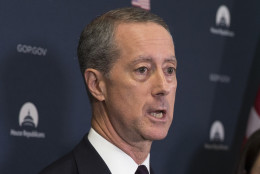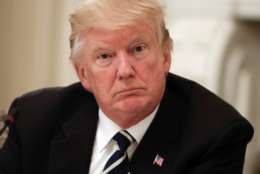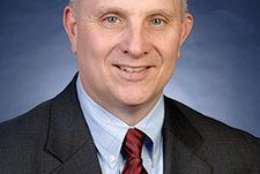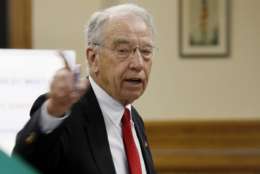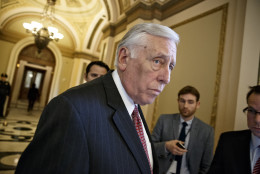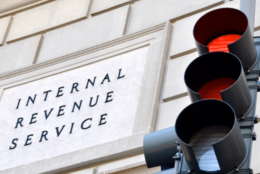Donald Trump
-
Rep. Mac Thornberry’s (R-Texas) said his draft version of the defense authorization bill includes a pay raise for military members and increased missile defense spending.
June 22, 2017 -
Kumbaya-like bipartisanship evaporates quickly and as the legislative week gets underway, Democrats, Republicans and the Trump White House are finding precious little they can agree on. That's especially true as budget hearings get into full swing. Roll Call Senior Editor David Hawkings joined Federal Drive with Tom Temin to provide a little more insight.
June 20, 2017 -
The White House kicked off tech week by hosting 18 private sector technology leaders from companies such as Amazon, Apple and Google at the American Technology Council meeting.
June 20, 2017 -
Industry and government both agree, without qualified people, America remains at risk in the cybersecurity wars. Rodney Peterson, director of the National Initiative on Cyber Security Education, joined Federal Drive with Tom Temin to discuss his team's efforts
June 15, 2017 -
This week's heat wave kicks off the annual strip show in some offices. And if so, is it better or worse than in previous years, when some feds said some coworkers looked like they were auditioning for the Rocky Horror Picture Show?
June 15, 2017 -
Senate Judiciary Committee Chairman Chuck Grassley (R-Iowa) blasted a recent opinion from the Justice Department's Office of Legal Counsel, which urges executive branches to respond only to inquires from congressional committee chairman. Some Cabinet-level secretaries have said they would not abide by the OLC policy.
June 09, 2017 -
If you pick 100 people at random from your federal agency, odds are 34 of them could retire today, or six months ago. But they haven't. Senior Correspondent Mike Causey explains why.
June 09, 2017 -
President Donald Trump unveiled details about his plan to privatize air traffic control. Instead of the FAA handling all aspects of general aviation, a non-profit entity would handle shift service and "route efficiency," and leave safety to the federal government.
June 05, 2017 -
The Office of Management and Budget issued implementation guidance for the cybersecurity executive order, giving agencies four deadlines over the next three months.
June 05, 2017 -
President Donald Trump’s new budget has many federal employees seeing red, as in Republican, and feeling blue, as in Democratic. Senior Correspondent Mike Causey explains why.
June 01, 2017 -
The Environmental Protection Agency's Office of Inspector General in its FY 2017 management challenges report, said the agency needs to get a better handle on its workforce and workload, otherwise it's "unclear" whether the loss of personnel is really all that bad for the agency. Cybersecurity, and oversight of states, territories and tribal areas, are also issues facing the department.
May 30, 2017 -
In today's Federal Newscast, the National Treasury Employees Union is worried the Trump administration's plan to eliminate the Public Service Loan Forgiveness Program would make it harder for agencies to recruit top talent.
May 30, 2017 -
Rep. Steny Hoyer (D-Md.) said he will make the case to fellow lawmakers that it’s the wrong time to cut federal employee benefits as the unemployment rate is low.
May 25, 2017 -
Internal Revenue Service watchdogs say the agency could do more in terms of taxpayer services if it had more human and financial resources. The White House proposed a fiscal 2018 budget of $10.9 billion, a cut of roughly $300 million from 2017 funding levels.
May 25, 2017 -
President Donald Trump has weighed in on the ongoing postal reform debate with a fiscal 2018 budget proposal that would save the U.S. Postal Service $47 billion over 10 years through cuts in retirement benefits and mail delivery costs.
May 24, 2017

